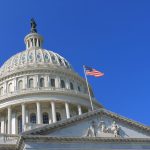Published November 16, 2012
US News and World Report's Debate Club
The president got one thing exactly right Wednesday during his press conference: Congress and the administration should be able to find a way to avoid the fiscal cliff.
Both sides should want to do so. The risks to the economy from going over the cliff are uncertain but real. The Congressional Budget Office projects that the tax hikes and spending cuts now on track to occur beginning in January would push the economy back into recession in 2013. The result would be a new surge in joblessness, with layoffs and business closings pushing the unemployment rate back above 9 percent. Do the nation’s political leaders really want to take the risk of inflicting such an unnecessary economic calamity on American workers? And it’s not just CBO sounding the alarm. The Federal Reserve Board Chairman Ben Bernanke has also warned Congress to do whatever is necessary to steer clear of the fiscal cliff.
Nonetheless, many Democrats are urging the president to take a tough line in the coming negotiations with the GOP. They think they won the election and that, in this game of political chicken, House GOP leaders have the most to lose with voters. That might be true in the short run. But it’s hard to imagine the president would come through the episode unscathed. If going over the fiscal cliff triggers economic turmoil and a market sell-off, thousands of currently employed Americans would lose their jobs. President Barack Obama’s entire second term would be irreversibly damaged.
Still, House GOP leaders have a lot at risk, too. If the current tax schedule is allowed to expire, as would occur if no deal is reached before January, then it is entirely possible that the resulting higher tax rates will become the new normal. The burden would then shift to the GOP to reinstate the rates that have been in place since 2001.
Fortunately, a deal can be struck rather easily. Both sides are open to delaying the main tax and spending cut provisions for a temporary period to provide time to negotiate a broader budget framework. The sticking point is that the president won’t allow an extension of the current tax schedule without some kind of tax hike on the rich. Fine. There are any number of ways to make that happen, including large-scale reductions in the deductions and loopholes available to the rich. The GOP should offer numerous options to the president.
But what should not happen is GOP capitulation to the president’s demands for a massive tax hike. The president is clearly trying to use the threat of the fiscal cliff to secure an agreement for a ten-year tax hike of $1 to $1.6 trillion. That should be a non-starter with the GOP. Any talk of permanent and large-scale tax hikes should be set aside until negotiations next year, when the entire budget, including entitlements are on the table.
James C. Capretta is a fellow at the Ethics and Public Policy Center and a former Associate Director at the White House Office of Management and Budget.






